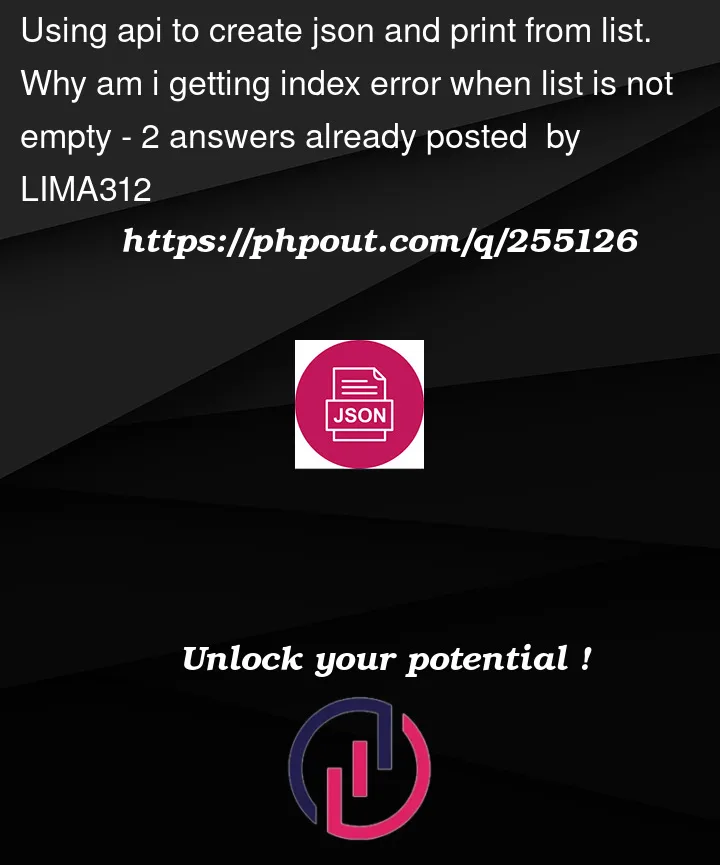In trying to generate a list of words with a specific number of syllables from datamuse api, and choosing a random one of those words to print, I often recieve an index error while I know the list cannot possibly be empty. Each subsequent word relies on parameters pertaining to the previous word. My full code has 7 words but all are essentially a copy of the second word. With all 7 words, yes, a list will sometimes be empty, but in the case with only 2 words and the given parameters I don’t understand why it is happenening.
`import json, requests, random
# FIRST WORD
related_word = input("word: ")
#create list for related words
parameters = {
'rel_trg': related_word,
'md': 's' # Request the number of syllables for each word
}
response = requests.get('https://api.datamuse.com/words', params=parameters)
related = response.json()
three_syllable_words = [] # creates list for three syllable words
for word in related:
num_syllables = word.get('numSyllables', 0)
if num_syllables == 3: #filters list to only 3 syllable words
three_syllable_words.append(word)
#select random three_syllable_word
first_three_sylword = random.choice(three_syllable_words)
first_word = first_three_sylword['word'] #use only word data
#print(first_word)
# Second Word
parameters2 = {
'rel_rhy':first_word, # Rhymes
'lc':first_word, # Left context to the original word entered by the user
'md': 's' # Request the number of syllables for each word
}
response2 = requests.get('https://api.datamuse.com/words', params=parameters2)
lcrhyme = response2.json()
two_syllable_words = []
for word in lcrhyme:
num_syllables = word.get('numSyllables', 0)
if num_syllables == 3:
two_syllable_words.append(word)
first_two_syl_word = random.choice((two_syllable_words))
second_word = first_two_syl_word['word']
print(second_word, first_word)`




2
Answers
Why do you think so?
What do you think happens if
relatedis empty?Try
As pointed out by @daviid in the answer here, the issue is that sometimes the API cannot find "related" or "rhyming" words for a given word. In those cases, calls to
random.choice()get passed an empty list and that is going to throw the error you see.You need to guard against those instances. Perhaps like:
Here is how I might initially address the task:
That will likely give you a result like: